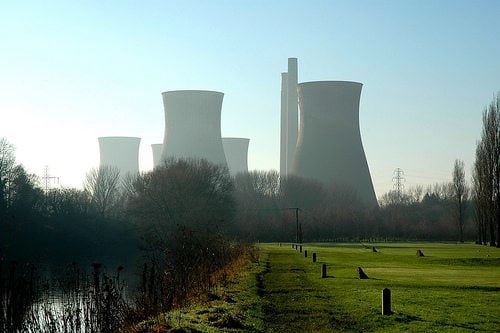

Invest
Axa: climate risks should not be neglected from investment decisions
Despite arguments that climate change is not a financially material risk in the short and medium term, asset manager Axa has warned investors not to exclude climate risks from their investment decisions.
The asset manager, one of the largest in Europe, noted that some in the investment industry are under the illusion that climate risks are a long way off because of signals from carbon markets, a robust climate change deal has yet to be agreed and scientists suggesting temperatures will not rise until the second half of the century.
However, Axa said that despite these arguments it “considers climate risk a short term opportunity” for a number of reasons.
Luisa Florez, a senior analyst in Axa’s Responsible Investment Department, explains, “Climate risk is becoming synonymous with reputation risk. Undoubtedly, there are a number of factors behind the recent decline in oil prices, such as shale gas development as well as countries returning to the markets.
“Nevertheless, moral issues are also playing a growing role with the divestment movement steadily gaining traction amongst investors across the globe. With its reference to the 1980’s South African divestment movement, the fossil fuel divestment campaign will continue to push investors to review their investment policies and determine if their reputations are at increased risk.”
The divestment campaign has led to an increasing number of universities, councils, religious institutions and pension funds facing pressure from member to cut fossil fuels out of their portfolio, with more and more responding to the demands.
Florez also notes that there is now an opportunity to consider the low-carbon economy as the renewable sector is growing. She adds that it is now increasingly understood that in the future, costs for dealing with climate change will be significantly more expensive, then if we were to take action now, affecting prices.
The final reason cited is diversification, Florez states, “The number of sectors offering green and energy efficient solutions has increased. So far the most intensive sectors, such as building, transport and industrials are offering more innovative and less expensive solutions then were available previously, with more sectors expected to bring new solution to the market.”
She added, “Whether an investor is interested in climate change for ‘moral’ or ‘pragmatic’ reasons, asset managers will likely need to make changes to their investment approach over time to respond to this changing dynamic.”
The comments come shortly after a study cautioned policymakers that the vast majority of fossil fuels must remain in the ground if the world is to avoid dangerous levels of climate change. The researchers added that fossil fuel investments are becoming “increasingly risky”.
Photo: steve p2008 via Flickr
Further reading:
The investment case for fossil fuel divestment
Is it right to invest in an FFFF (Fossil Fuel Free Fund)?
Divestment: University of London’s school freezes fossil fuels investment
Church of England votes in favour of reviewing fossil fuel investments
Report says investing in fossil fuels is a ‘very risky decision’


 Environment12 months ago
Environment12 months agoAre Polymer Banknotes: an Eco-Friendly Trend or a Groundswell?

 Features11 months ago
Features11 months agoEco-Friendly Cryptocurrencies: Sustainable Investment Choices

 Features12 months ago
Features12 months agoEco-Friendly Crypto Traders Must Find the Right Exchange

 Energy11 months ago
Energy11 months agoThe Growing Role of Solar Panels in Ireland’s Energy Future





























